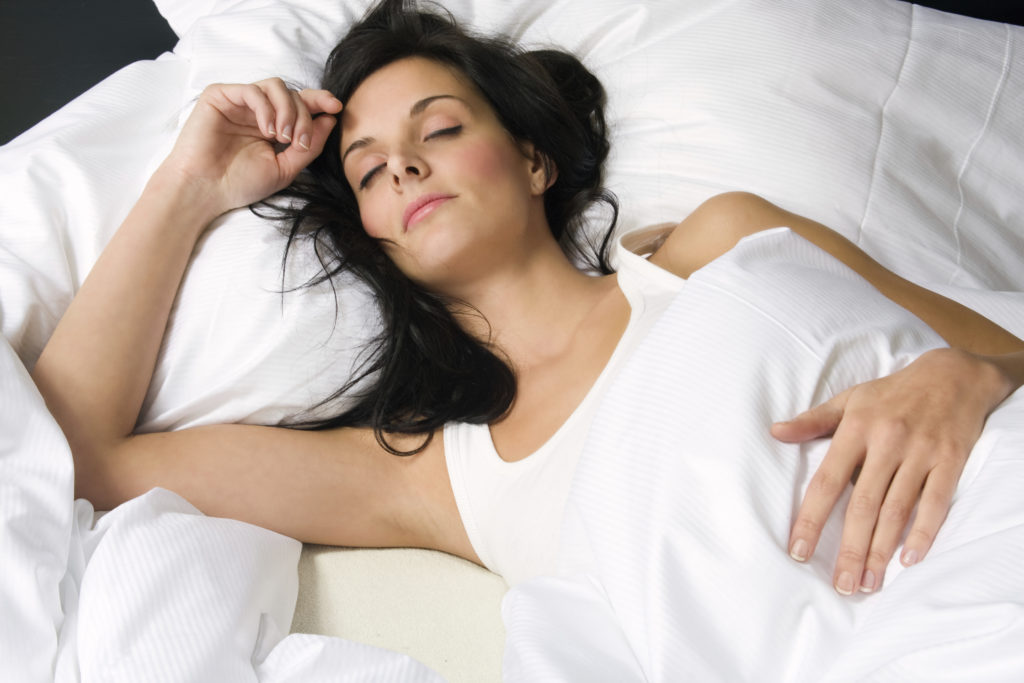
Sick and Tired of Being Sick and Tired?
One of the most common medical complaints is fatigue. Today’s lifestyles are extremely demanding, especially for double income or single parenting families. Unfortunately, our efforts to meet those demands are often at the expense of the one of the most important facets of health – sleep.
Sleep deprivation can lead to increased susceptibility to chronic disease (i.e. diabetes and heart disease), acute illnesses (i.e. colds and flu), weight gain and cancer. Most people need 7-9 hours of quality sleep nightly. To encourage you to make sleep a priority, lets examine what happens when we skimp on sleep.
Sleep deprivation inhibits our ability to think clearly, so anxiety is heightened. Anxiety, a type of stress, causes the adrenal glands to release cortisol. Excess cortisol depletes our immune system increasing susceptibility to illness. Cortisol also stimulates the production of glucose in the liver, which in turn stimulates the release of insulin and insulin-like growth factor (IGF). Increased IFG is associated with the promotion of cancer. Also, for reasons still not understood, cortisol causes the body to store fat, especially in the abdominal area. Finally, excess cortisol causes hypothyroidism, which increases fatigue.
When we are tired, we crave sweets and other simple carbohydrates for quick energy. Consumption of sugary foods, especially those that contain fructose cause elevated blood lipids (cholesterol and triglycerides) and insulin resistance. The body has no choice other than to store the excess energy as adipose tissue (fat). Excess adipose tissue sets up an inflammatory state in the body and the resultant inflammatory chemicals are associated with promotion of cancer. In addition, spikes in blood sugar instigate concurrent spikes in insulin and IGF, which result in low blood sugar and the subsequent release of cortisol, etc.
In an effort to maintain function, we drink coffee or other caffeinated beverages. Caffeine also causes release of excess cortisol, which as previously demonstrated, is detrimental to one’s health. Drinking caffeinated beverages in the afternoon can also cause insomnia, especially if liver function is compromised so that caffeine remains in the body for long periods of time.
Now that you are aware of the importance of sleep, let’s delve in to physical reasons for insomnia.
Proper nutrition and gastrointestinal function are imperative for the production of hormones, neurotransmitters, enzymes and coenzymes necessary for the metabolic processes that maintain the delicate balance of health. Nutritional deficiencies and gastrointestinal disorders can result in low amounts of serotonin, a neurotransmitter that is converted into melatonin, the sleep hormone.
Proteins require stomach acid to break them down so amino acids like tryptophan, the precursor to serotonin, can be absorbed. The conversion of tryptophan to serotonin requires zinc, magnesium, iron, calcium, vitamins C, B6, folate, and thiamin. Pantothenic acid (vitamin B5) and S-adenosylmethionine (SAM) are needed to convert serotonin to melatonin. As you can see, even something as seemingly unrelated as taking an antacid can lead to reduction of melatonin and the resultant inability to get to sleep.
Paradoxically, insulin release both contributes to and disturbs sleep. Insulin helps tryptophan cross the blood brain barrier so it can be converted to melatonin. This is why people get sleepy after eating foods high in simple carbohydrates (after the initial hyperactive state). However, the consequence of an insulin surge is low blood sugar, which is stressful to the body. As previously explained, stress causes the release of cortisol, which will then awaken one from sleep.
If you have a hard time staying asleep, hormonal imbalances may be the cause. Our highly stressed lifestyles result in severe taxation of our adrenal glands, which are responsible for making cortisol, the stress hormone released when one is stressed for longer periods of time without an outlet, such as exercise or meditation. Excess cortisol can disrupt the hypothalamus, pituitary adrenal (HPA) axis so that cortisol is produced at inappropriate times, which can impair one’s inability to go to sleep, stay asleep or get back to sleep after awakening around 2 or 3 am.
Extreme hormonal imbalances can result in “tired and wired” state – exhausted and sleepy during the day, but wound up when it’s time to sleep. Caffeine use to maintain daily function further contributes to cortisol imbalance. These patients are often the most difficult to balance because they are usually a Type A personality and are addicted to stress hormones. Their addiction to caffeine causes withdrawal headaches and extreme fatigue during detoxification. Lifestyle changes are difficult because their habitual inclination to create more to accomplish often provides their sense of self worth. There are effective interventions, however. Herbs and supplements coax the HPA axis back to normal function and mind/body techniques can address mental emotional aspects of dysfunction.
Hormonal imbalances before menses and during menopause can also disturb sleep. Herbs, supplements and bio-identical hormones can be used to help balance hormonal fluctuations so women don’t have to suffer during these times. It’s also important to remember that the normal fluctuations in hormones are part of what it means to be female. Tracking menstrual cycles is a great tool to determine when to take extra steps to support sleep and relaxation and avoid stressful events.
An interesting side is that if the pathway for cortisol production is increased, it is at the expense of the other pathways, especially testosterone production. It’s no wonder that stress and sleep deprivation causes loss of libido and decreased energy!
If you have trouble getting to sleep excess cortisol can be responsible, but a little sleep hygiene may be all you need to allow the body to process the necessary hormones needed to induce a deep sleep. Here are some tips for better sleep:
Avoid drinking beverages containing caffeine after 12 noon. Avoid drinking any liquids for 2-3 hours before retiring so you won’t have to wake to use the restroom.
Avoid drinking alcohol. While it can help you to fall asleep, alcohol keeps you from reaching the deep REM (rapid eye movement) sleep so that you can be awakened easily throughout the night.
At least an hour before going to bed, avoid being in brightly lit rooms or looking at television and computer screens so melatonin can be produced.
Avoid reading or watching news or adventure stories that induce the release of stress hormones. Our brain cannot tell the difference between actually participating in the event and observing it. This is why our heart beats faster and respiration increases when we are watching the latest horrific news event or our favorite sports team making an awesome play. Adrenaline hormones inhibit the release of sleep hormones.
Avoid strenuous exercise late in the evening, but do exercise 20 to 30 minutes daily to help reduce stress hormones.
Remove all electronic devices from the bedroom, especially televisions, cell phones, computers and even clock radios. Use a battery powered alarm clock, which eliminates over-sleeping due to power outages. Electromagnetic fields have been shown to disrupt the production of serotonin and melatonin.
Optimal room temperature for sleep is 68 degrees. If you use a fan for white noise or cooling, don’t allow it to oscillate or blow directly onto you.
Sleeping in a quiet, dark room allows a deep restful sleep. Get rid of nightlights and cover windows to eliminate street and moon light.
Finally, pharmaceutical sleep aids, such as hypnotics (Ambien, Lunesta, Sonata), benzodiazepines, barbiturates and sedative antihistamines are addictive and have detrimental side effects. Studies have shown they disrupt the proper balance and function of neurotransmitters and hormones, thereby inhibiting the ability to attain deep, restorative sleep states.
Scientists who study sleep patterns have determined that our most natural sleep pattern consists of two four-hour, bi-modal sleep sessions with one to two hours of wakefulness in between. Since today’s societal demands do not allow for a resting period of 10 hours, it can cause a lot of anxiety when we wake at two or three a.m. only to have to wake to the alarm at five or six a.m. to begin a busy day. However, if we go to bed a little earlier, such as eight to nine p.m., then the waking nighttime hours can be used for quiet introspection and contemplation, in addition to more active pastimes like making love. This is an important part of our ability to regulate stress naturally. So the next time you wake before the alarm goes off, relax and surrender to your brain’s processing of your experiences. You just might find yourself waking to your alarm clock feeling much more rested and relaxed.
Of course, there are other factors that need to be evaluated in determining the cause of fatigue. Iron and/or vitamin B12 deficient anemia, thyroid disorders, cancer and other chronic diseases can all be responsible for extreme tiredness. Pharmaceutical drugs, over-the-counter drugs, supplements and environmental toxin exposure and their interactions can also cause disturbance of sleep and fatigue.
If you are experiencing daily fatigue and loss of energy, it is important you see a doctor that will listen to you, take the time to investigate the cause and then assist you in getting your life back!
The information provided is for educational purposes only and is not intended to be used as medical advice or as a substitution for medical care provided by a licensed medical doctor.
Cheryl Hamilton, NMD, began her career in healthcare 32 years ago.
She earned a B.S. degree in Nutrition, worked in the health and fitness industry, and raised four children before attending the Southwest College of Naturopathic Medicine to become a Naturopathic Medical Doctor. Her office is at 8363 E. Florentine Road, Suite C, in Prescott Valley. For more information, call 928-515-2363, or go to www.healthandhealing.center.



